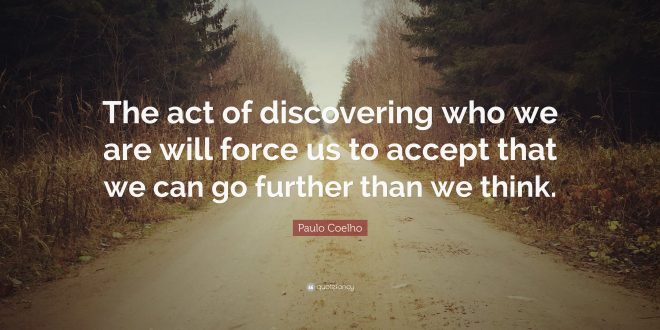By: Junfang Liu
Over time, I’ve discovered that many people, including my friends and I, are not satisfied with ourselves. We usually demand a lot from ourselves, and in fact, we do gain a lot of praise and awards. However, whenever we talk about what we did well, many times we feel even more pressured: we begin thinking “it is not enough; I need try harder and work better.” We’d say, “I’m not smart enough, I’m not pretty enough, I’m not popular, I don’t like myself, etc, etc.” We try our best to become the perfect person: we study hard, work hard, and try to please everyone around us. Yet, it seems we are chasing a goal that always out of reach.
American psychologist Mr. Ram Das once suggested in his book that we need to know how to face our weakness, shake hands with ourselves, leave the past behind, and start a good life. He drew the lesson from his own experience. Mr. Das had been a very successful university professor and public speaker for a long time until he had a stroke that seriously damaged his language skills and abilities, a detrimental blow to a once-talented speaker.
Instead of feeling hurt and ashamed, he accepted these setbacks and spoke much slower during his talk. To his surprise, he found that the audience had the opportunity to focus on the silence between his intermittent words, better understand his thoughts, and answer the questions that he posed themselves. When he was in silence, the audience would think in silence. So once he stopped, the surrounding is full of peace and tranquility that he had never experienced before. The acceptance of his change and his inability to speak fluidly made him more cheerful than before.
In our lives, there will always be many times where we discover our own weakness and inability to achieve our goal. The process of accepting our own weakness is the process of reconciliation with ourselves. When we accept something that may not be as perfect as we want, we must learn to still appreciate ourselves and the world around us.
Let us all take a moment to really determine the quality of our lives. Sometimes, when we must face our downfalls, when we find ourselves not perfect and not strong enough, instead of feeling disappointed, we may consider the moment an opportunity to learn from our own experience. We may find that these imperfections will open another door for ourselves, a door behind which hides another beautiful world.
 Tempus Magazine By Students, For Students
Tempus Magazine By Students, For Students 



